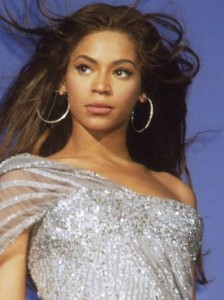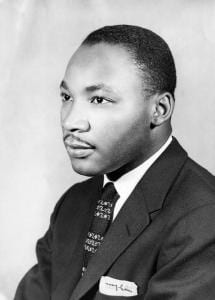
A few thoughts on Beyonce’s pregnant body:
It is breathtakingly beautiful.
It is unashamedly sensual.
And it is holy.
Full stop.
No qualifiers.
Watching Beyonce’s Grammy performance, I nearly wept. We’ve seen stylized photos of pregnant celebrities before–they’re hardly controversial at this point. But I can’t remember seeing a pregnant woman on stage at a mainstream cultural event, doing her thing–being an artist, interpreting, performing, working–instead of hiding her “delicate condition.” (Vanessa Williams immediately tweeted:“They never showed my pregnant belly when I sang my nominated ‘Save the Best for Last.’)
It’s more than that though. This wasn’t just another day at the office. Beyonce’s Grammy performance was a sophisticated reflection on womanhood and matrilineal descent. Reverent, even.
At times she looked like the Virgin Mary–a shock, perhaps, to those who have only thought of Mary as demure, fragile, silent, and above all, white–but she also appeared as Hindu and African goddesses. The golden corona she wore was, at times, lit to appear like a halo from Christian art, but it was also a reference to Kali, Hindu goddess of death, fertility, and motherhood, and to a West African water goddess who predates Isis.
A tableaux of women seated at a long table recalled the Last Supper with an all-woman cast (and maybe also Solange’s album, A Seat at the Table). Beyonce, at the head of table, reclined, precariously, in a straight back chair, heavily pregnant belly exposed, vulnerable to the world. Yes, the image recalled a sacrificial altar and a very famous painting, but also, for me at least, it recalled the offering of one’s body for inspection in the ob-gyn’s stirrup chair, which is just one among countless vulnerable moments for a pregnant woman (if you’re lucky enough to have healthcare).
Throughout, Beyonce played powerful images of goddesses against the vulnerability of the pregnant body, brilliantly articulating the paradox of motherhood: women may bring life into the world, and yet the life that grows inside us will inevitably die. Pregnancy underscores mortality. Fertility is the experience of both overwhelming power and terrifying powerlessness.
Predictably, social media exploded: The performance was called “weird” and “boring” and “narcissistic.” It was cited as further proof of bizarre rumors that Beyonce is in the Illuminati (and that Adele was making a sacrificial offering to her by saying she deserved her Grammy!) or that she’s really a Satanist. There were also the inevitable comparisons to Madonna. But Beyonce’s performance didn’t strike me as an appropriation of religion to shock the viewer. It read like a sincere exploration of religious imagery and what it means for contemporary women. It can be both empowering and burdensome.
“You look just like your mother.”
“You look nothing like your mother.”
Maybe the varied symbolism was lost on many viewers–religious illiteracy plays a part in that, for sure. There was also a possessive sniffing from some Christians who suspected they should be offended. We have very little context for a mainstream celebrity working out her womanhood with such reverence and respect, an iconic pop star seating herself at the table among archetypal artistic and religious images of motherhood.
In conversation about Beyonce’s performance, a friend reminded me of the Black Madonnas (including Poland’s Our Lady of Częstochowa), widely venerated images of Mary that some believe were supernaturally darkened. There are other theories too (and examples across cultures). The Black Madonna is said to be a new Demeter or Ceres, Mary as a culmination of pre-Christian myths, our true earth mother. But what comes to mind when I think of Queen Bey in her halo is how Sister Suzanne Mattiuzzo described icons of the Black Madonna as “a retrieval of the feminine archetype from the collective unconscious” and “an image that holds the tension of all human struggle and creativity.”
A brown-skinned, pregnant woman, living out the tension of human struggle and divine creation? Tell me again why Beyonce shouldn’t remind us of Mary? Why any pregnant woman shouldn’t? A woman’s pregnant body, haloed or not, is a locus of holiness.
“The Black Madonna embodies cultural perspectives not emphasized in traditional doctrine,” I wrote when I saw an image of her at Notre Dame in 2004. In other words, she belongs to lived faith, to experience, not dogma or doctrine or academic theology.
Yeah. Like Beyonce, she puts brown women in the picture.
Watch Beyone’s performance here.












